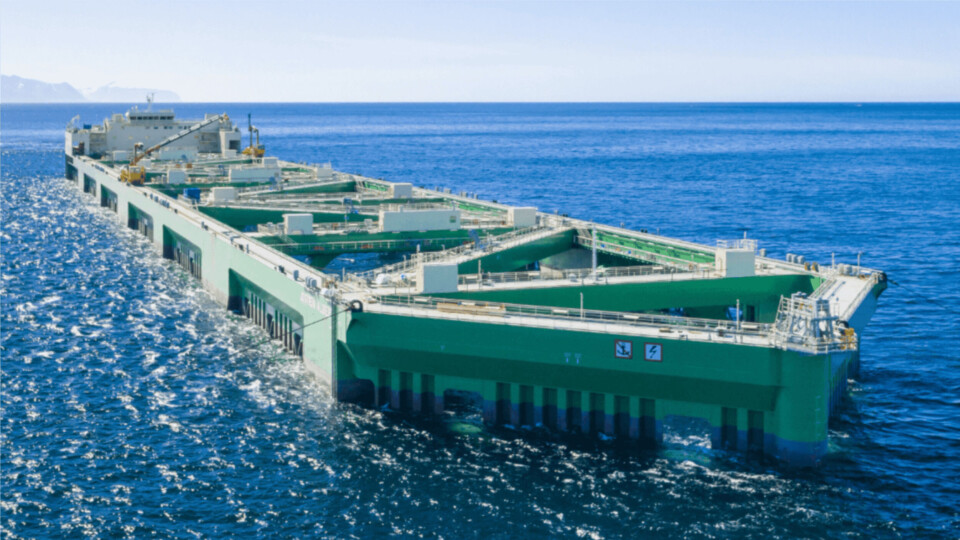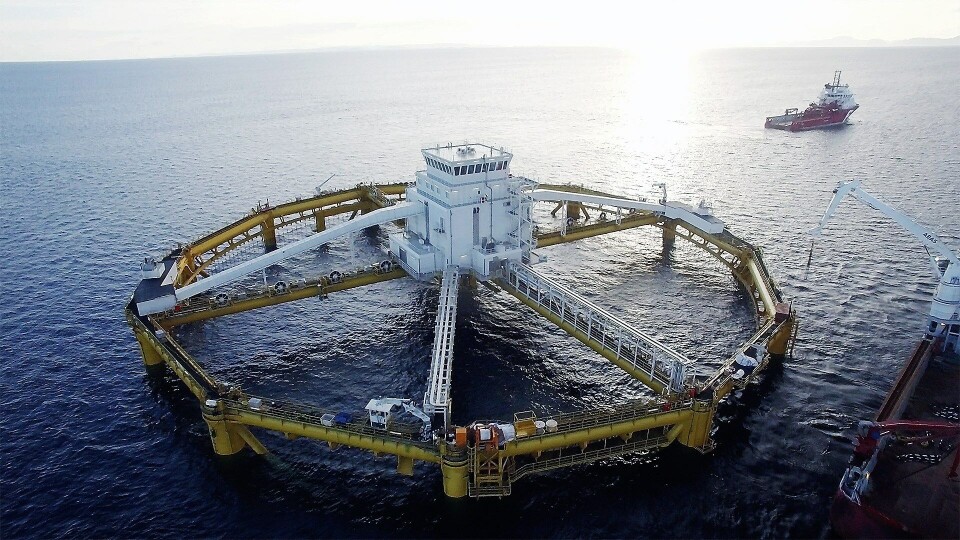
Authorities reject bid for permanent Havfarm permits
Norway’s Directorate of Fisheries has rejected an application from salmon farmer Nordlaks to convert the 13 temporary development permits granted for its huge Havfarm 1 into permanent fish farm licences.
To date, Nordlaks has made just one stocking in the Havfarm, which arrived from China last year. In the period between July 25 and September 6, 2020, a total of 2.33 million salmon from Nordlaks’ Grøttøy and Bullatholmen sites were stocked. Harvesting took place from January 13 to June 8, 2021, when the last fish in the facility were slaughtered.
The directorate ruled that although the Havfarm had met most of the target criteria set for the project, the single farming cycle carried out in the structure was not enough to fully evaluate the project.
In order for the rest of the industry to benefit from technology developed as a result of development permits, results from production in such facilities must be made clearer than is currently the case in the Havfarm project, the directorate said.
Jury still out on Havfarm
Even if there is no requirement for success for the development projects, an evaluation of the project will necessarily have to include an assessment of whether the project has been successful.
“The Directorate of Fisheries believes it is too early to conclude that the project has been successful, based on the available results,” said the government body. “However, we also do not believe that at the present time one can conclude the opposite.”
The directorate has pointed out that may still convert development permits to permanent biomass licences, provided that the target criteria set for the project are met.

A win for SalMar
In July last year, SalMar’s application to have eight development permits granted for Ocean Farm 1 converted into permanent licences was approved by the directorate.
Conversion of development permits allows Norway’s fish farmers to increase their maximum biomass allowance much more cheaply than if they if they had to buy the biomass at government auctions. This is intended to incentivise fish farmers to spend money on the development of new farming systems such as Ocean Farm 1, which cost SalMar around NOK 1 billion.






















































